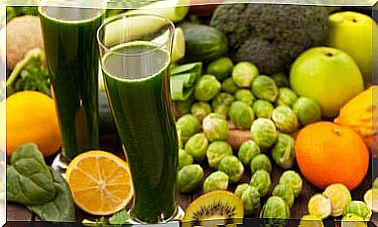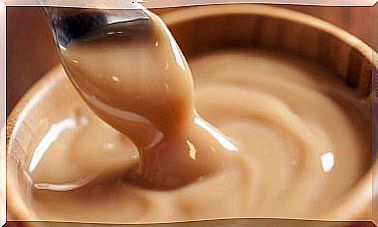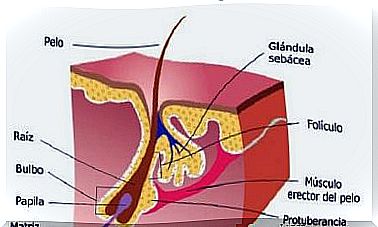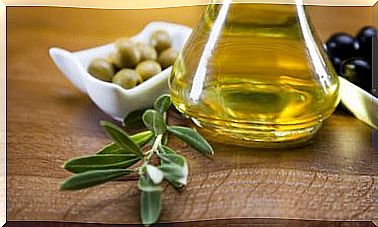Why Should You Have Quinoa?
Quinoa is the seed of a plant scientifically known as Chenopodium quinoa. It is a food that has become quite popular in recent years, not only for its versatility, but also for its high concentration of nutrients.
In addition, it is one of the healthy alternatives for people with celiac disease, since it does not contain gluten. The most interesting thing is that it can be included in the diet in many ways, as it is boiled and adds a pleasant nutty flavor to dishes such as salads, soups, breakfast porridge, among others. Do you dare to try it?
Nutritional properties of quinoa
A publication in the Journal of the Science of Food and Agriculture , recognizes quinoa as a “functional food” that can help reduce the risk of some diseases. These qualities are largely attributed to its content of essential nutrients, which include minerals, vitamins, fatty acids, and antioxidants.
Quinoa in particular provides around 16 grams of protein per 100 grams. Similarly, it offers 6 grams of fat in every 10 grams of food. Here’s a breakdown of its main nutrients:
- High level of protein, up to 25%.
- Contains minerals: iron, potassium, calcium.
- Vitamins: C, E, B1, B2 and B3.
- Omega 6 fatty acids.
- Fiber.
Benefits of consuming quinoa
There are many reasons to consume quinoa as part of your regular diet. In fact, as highlighted by data published in Food Science and Nutrition , this food has attracted the attention of the scientific community due to its nutritional quality. Therefore, we highlight its benefits below.
It helps you lose weight
The nutrients quinoa contains are beneficial for people who are trying to lose weight. For example, it contains dietary fiber that helps improve gut health and helps prolong feelings of fullness.
It also provides protein, which according to a study published in Nutrition Journal , is one of the factors that affect weight loss, as it improves metabolism activity and calms the feeling of anxiety. This, in turn, helps prevent overweight and associated diseases.
Lowers LDL cholesterol
Quinoa contains soluble fiber. This helps to eliminate excess fat each time a food is eaten. Also, the amount of fatty acids are responsible for increasing good cholesterol (HDL) and reducing bad cholesterol (LDL).
On the other hand, we must not forget the antioxidant substances that help improve metabolism and clean the fats that adhere to the arteries. In fact, according to research published in the journal Current Developments in Nutrition, quinoa helps control triglycerides in the blood.
In particular, its properties would help regulate the level of these lipids in overweight and obese patients. Likewise, it is associated with a decrease in the prevalence of metabolic syndrome.
Contains flavonoids
Data published through the scientific journal Molecular Nutrition & Food Research revealed that this food contains quercetin and kaempferol, two types of flavonoids that are attributed anti-inflammatory, antidepressant and antiviral properties.
Ideal for celiacs and diabetics
Through a publication in the Latin American Nutrition Archives , it is suggested that quinoa-based products are a healthy and tolerated option for celiac patients when it comes to replacing wheat. In turn, the evidence shows that its moderate consumption is beneficial for people with diabetes.
How to prepare it?
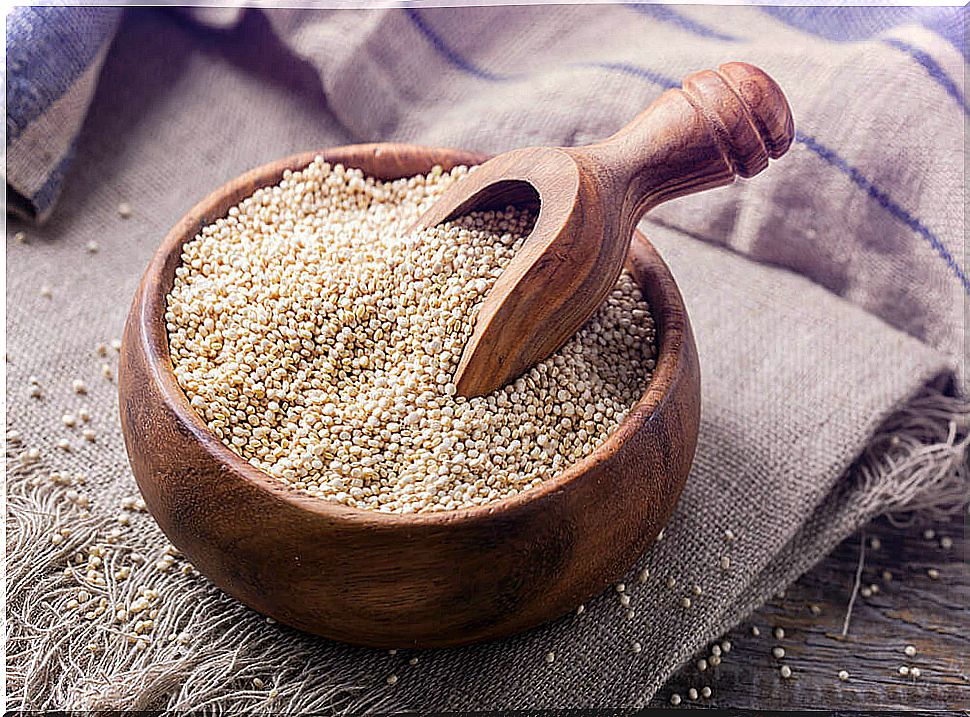
Quinoa germinates very quickly and is a very good option to obtain a significant dose of protein. Next, we show you how to prepare it.
Ingredients
- ½ cup of quinoa (100 g)
- 1 tablespoon of olive oil (16 g)
- 1 glass of water (200 ml)
- Salt to taste)
Preparation
- To start, wash the quinoa very well under running water for a few minutes.
- Next, heat the oil in a pan and add the quinoa to sauté it.
- Later, add the water and salt to taste.
- Finally, cover and simmer over low heat.
How to use
Once cooked, the quinoa can be used in:
- The making of c ereal and granola.
- Soups or salads.
- Making cakes and cookies from quinoa flour .
Now that you know its main nutritional properties, it is time for you to start consuming quinoa more frequently. Of course, if you have any questions or special health conditions, consult your nutritionist first.


